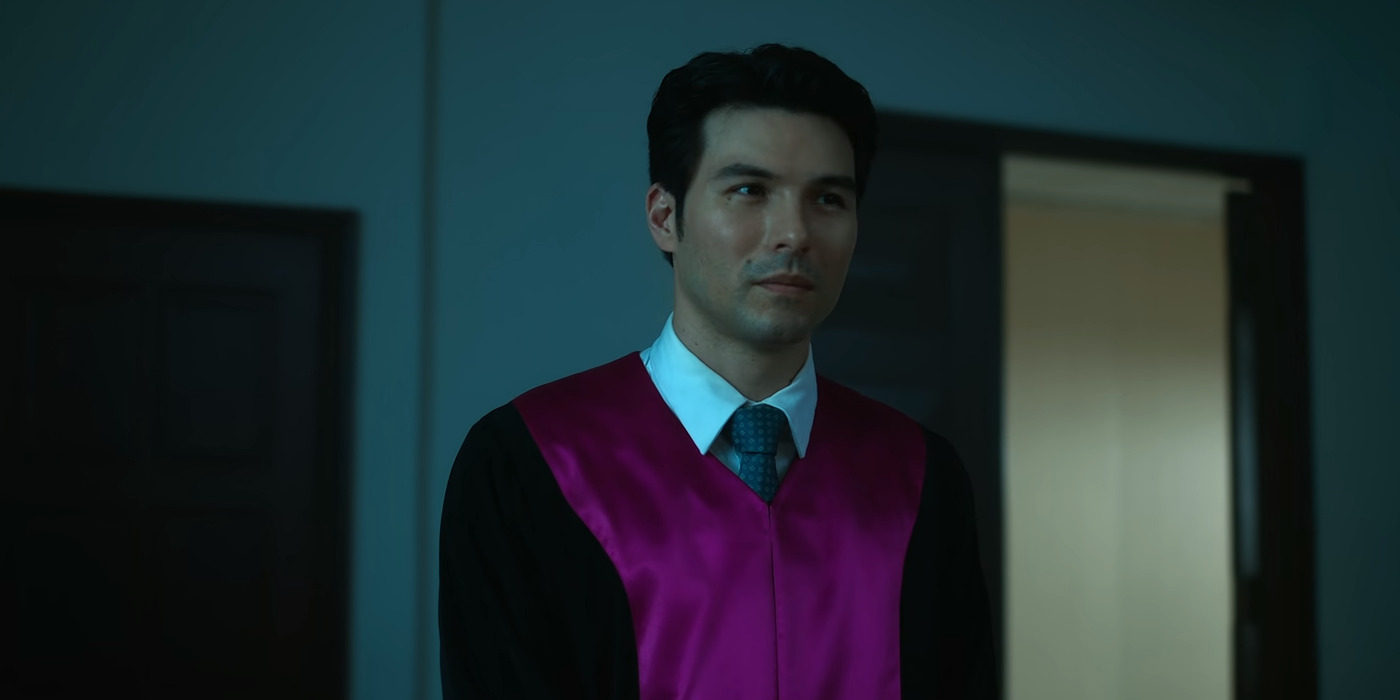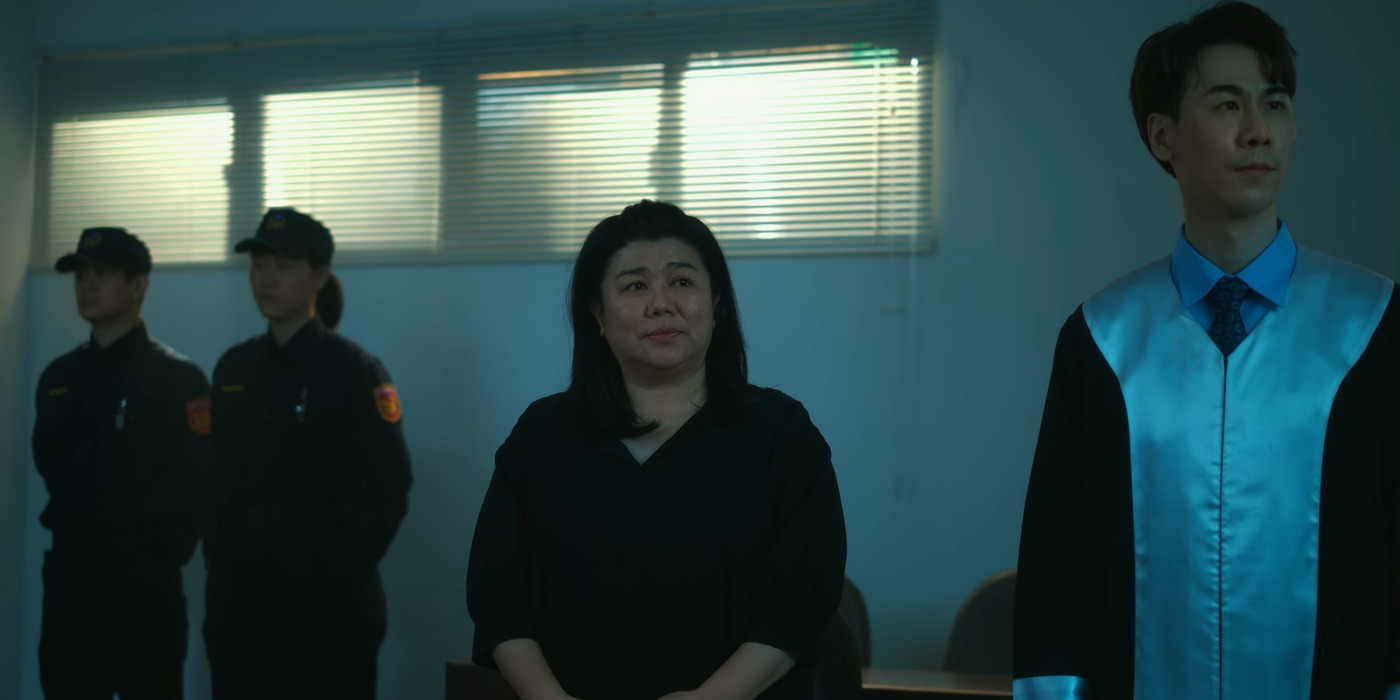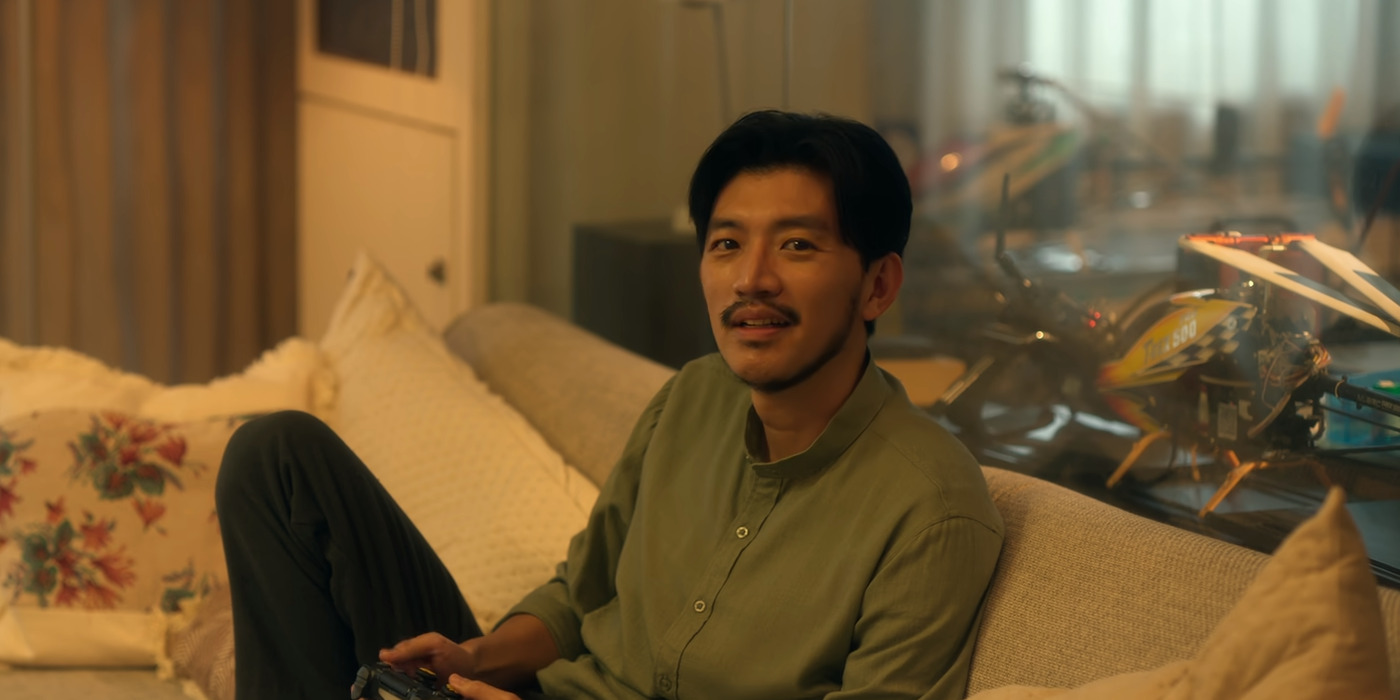‘Lost in Perfection’ is a Mandarin psychological thriller film that delves into a highly sensationalized criminal case revolving around a woman who faces accusations of an expansive romance scandal. Li-mei Huang is a TV anchor with a thriving career and an engagement underway. However, her ideal life comes under threat after her aging widower father dives into a whirlwind romance with a younger woman, Hsiu-ian Ho. Soon, the media picks up stories about Hsiu-ian’s alleged involvement in the death of her previous lovers.
As a result, Li-mei joins forces with the prosecutor on the case, Guo-iun Lee, and tries her best to incriminate the woman for the crimes to ensure her father doesn’t become her next potential victim. Li-mei’s narrative sheds an ambiguous light on Hsiu-ian’s character, allowing the film to maintain an air of intrigue around the other woman. Thus, as the story comes to an end, it leaves the viewers with many questions about the two women and their levels of innocence. SPOILERS AHEAD!
Lost in Perfection Plot Synopsis
Li-mei Huang, a highly successful TV reporter, excels at her career with her wedding coming up on the horizon. However, despite her seemingly perfect relationship with her fiance, Ta-wei, neither is truly happy with the other. Furthermore, a few months before the wedding, Li-mei’s father shares the news of a serious relationship with her out of the blue. As it would turn out, her father met a woman, Hsiu-ian Ho, from Li-mei’s apartment complex.

Although they have only been dating for half a year, Hsiu-ian showcases an interest in marriage, compelling Li-mei’s father to introduce the two women. Yet, once Li-mei meets Hsiu-ian over dinner, she remains unimpressed by the woman. Even though the woman is much older than Li-mei, she’s younger than the reporter’s father and also richer. Thus, Li-mei begins doubting her intentions.
Meanwhile, Prosecutor Guo-iun Lee runs into a roadblock in his case against a woman suspected to be extorting money from older men only to kill them later. Despite the evident pattern, Lee can’t find evidence proving the woman’s guilt. Worse yet, her last ex-lover insists that he sent her an exorbitant amount of money off his free will, further damaging the case Lee is building against the woman.
However, after the police uncover a dead body with laceration marks and carbon poisoning, Lee’s attention is pulled back to the woman. The victim’s sister insists that she never got a good read from her brother’s girlfriend, Hsiu-ian Ho, and suspects her of the crime. Although everything remains speculative, news media begins picking up on the story.
Li-mei herself deals with personal issues in her own life after Ta-wei disappears from their house weeks before their wedding. Consequently, the woman learns that her fiance has been having an affair with a younger woman and plans to call off the wedding since he no longer believes Li-mei loves him. Nevertheless, it isn’t long before the news about Hsiu-ian catches Li-mei’s attention.
As a result, she attempts to subtly confront Hsiu-ian about the matter, only to learn that her father has already secretly married the woman despite the media’s chatter. Soon enough, the case blows over, leading to the cops detaining Hsiu-ian from her apartment. Yet, instead of helping the woman, Li-mei uses the opportunity to snoop around Hsiu-ian’s possessions to build a case against her.
Thus, once Hisu-ian achieves her quick bail, Li-mei joins forces with Prosecutor Lee to help him prove Hsiu-ian’s guilt. At the same time, she pretends to be on the woman’s side for her father’s sake and arranges a lawyer for her. In the days that follow, the media continues digging into Hsiu-ian in a negative light. Similarly, Li-mei interviews the woman’s former lovers and the victims’ families to craft a sour narrative around her for Lee’s case.
Ultimately, Hsiu-ian undergoes a trial, during which she remains imprisoned. In her trial, she argues all previous victims died by suicide, arguing it wouldn’t make sense for her to hold a monetary motive since she secured money from each man long before their deaths. Nonetheless, the public remains vehemently against her. Perhaps only Li-mei’s father insists on her innocence.
However, Li-mei learns that Hsiu-ian took out life insurance for her father after marrying him. Moreover, news of her marriage to the man also comes out into the media, compelling people to target him. As a result, under Lee’s advice, Li-mei goes on air and manipulates the public against Hsiu-ian by claiming she has brainwashed her father into a relationship with her. In the end, the court finds Hsiu-ian guilty, denying any chances of appeal.
Thus, Li-mei’s father becomes agitated after an imprisoned Hsiu-ian persuades him to return to his regular life and forget her. Consequently, the man commits suicide, blaming his daughter and the media for ruining Hsiu-ian’s life in his suicide note.
Lost in Perfection Ending: Why Does Li-mei Kill Guo-iun Lee?
Near the end of Hsiu-ian’s trial, Li-mei has everything under control. Despite her failing relationship with Ta-wei, the woman finds a new, more fulfilling romance with Lee, who seems more appreciative of her ambitious personality. Furthermore, with Lee’s help, she successfully rescues her father from Hsiu-ian’s alleged clutches. Therefore, once news of her father’s suicide arrives, it completely breaks the woman.

Li-mei enters a depressive state as the media hounds her for information about her father’s suicide. Somehow, the unpleasant words left by the man regarding his daughter have already leaked into the public, condemning Li-mei to constant reminders about her father’s tragic death. As such, she decides to resign from her job and retreats to a private life. Nevertheless, her boss is unwilling to let such a talented worker slip away and attempts to get her back in the field.
In order to do so, the boss shares a scoop about Lee’s possible collusion with a member of a PR marketing official. As a result, Li-mei realizes that Lee’s insistence in prosecuting Hsiu-ian of the crime was not a purely selfless endeavor. Lee’s possible contact with the President’s office could mean he was pushing the case to ensure other unfavorable news about the government’s personal matter could’ve remained out of the public eye.
As a result, Li-mei decides to covertly investigate Lee to find the real truth behind the man. Even though Ta-wei returned to the former reporter after her father’s death, she splits her time between him and Lee. Thus, she acquires the means to snoop around the latter’s apartment to uncover any incriminating evidence against him.
Eventually, once Li-mei figures out a way to break into Lee’s laptop, she finds sound bites of his meetings with the President’s Office representative. Through the recordings, she learns that he was the one who convinced her father to come out in public about his marriage to Hsiu-ian. Afterward, he manipulated Li-mei to attack Hsiu-ian publicly and tarnish her image beyond repair— so much so that the woman was convicted without firm evidence.
Once Li-mei learns the same, she realizes Lee is partly to blame for her father’s predicament. Instead of caring about justice like Lee claimed, the man only cared about furthering his career, regardless of its morally murky costs. Worse yet, the man manipulated Li-mei to achieve his goals and indirectly played a crucial role in driving her father to suicide.
For the same reason, Li-mei decides to kill Prosecutor Lee to make him pay for his conniving ways. Therefore, Li-mei ends up mirroring the criminal that the media tried to paint Hsiu-ian as. During her break from journalism, Li-mei had been taking cooking classes, from where she got the idea to poison Lee’s food. As such, after discovering Lee’s true face, the woman kills him through the same method in his own apartment.
Is Hsiu-ian Ho Guilty?
Within the film’s narrative, Hsiu-ian’s actions remain the central point of conflict. Despite the mounting public outrage against the woman, the storyline leaves enough room for the viewers to wonder if the woman is truly to blame for her crimes. After all, why would she kill the men after her monetary ambitions have already been fulfilled? The most prominent evidence that the prosecution has against Hsiu-ian remains the fact that her victims died of carbon poisoning.

Nevertheless, Hsiu-ian claims that she only buys the incriminating charcoal for culinary purposes. Still, the circumstantial evidence, paired with the strong public opinion fueled by Li-mei, becomes enough for the court to declare the woman’s guilt. However, one piece of evidence strategically remains out of the conversation.
During the trials, Li-mei’s father becomes hellbent on proving his partner’s innocence. For the same reason, he attempts to look for alibis that would clear Hsiu-ian’s name and realizes that she was shopping for her wedding ring at the time of the latest murders. Nonetheless, Li-mei finds no trace of the same when she looks into it.
Yet, Li-mei never looked into the alibi herself. Instead, she asked Lee to check it out for her. The man— predictability covered up the alibi and lied to Li-mei to ensure his career-defining trial goes according to his wishes. As such, the court refuses to budge on their conviction even after repeated appeals.
Later, as Li-mei begins to realize she may have been wrong about everything, she also doubts her own vehement rejection of Hsiu-ian. One of the major reasons Li-mei had been so brazen in her witch-hunt against the other woman was because Lee confirmed that the woman had ordered charcoal into her partner’s house before her arrest. Therefore, Li-mei believes she may have been planning on killing the father to reap the life insurance money.
Nevertheless, Hsiu-ian turns the insurance over to Li-mei’s control after her father’s death, showcasing that the woman really never wanted to marry the man for any ulterior motives. Furthermore, as it would turn out, the woman was actually buying charcoal for culinary reasons since she was working towards a Japanese Chef’s license. Even though Li-mei realizes Hsiu-ian’s innocence, the court takes a while to catch up.
Still, two years after Hsiu-ian’s initial conviction, the Supreme Court reverses its decision and vacates the woman of the charges. As a result, Hsiu-ian becomes free of her imprisonment and returns to her regular life. Moreover, Li-mei reports the news on her channel on her first day back on the job, signifying the process of the reporter righting her past wrongs by clearing Hsiu-ian’s name through the same tool that helped incriminate her— the media.
Does Li-mei Kill Her Fiance, Ta-wei?
Two years after Li-mei’s life spiraled out of control, the woman returns to a sense of somewhat normalcy. Even though she murdered Lee, the reporter strategically covered up the crime and ensured that the police would keep her name out of any reporting. Furthermore, by staging the prosecutor’s death as a suicide, complete with a note, she ensures that no one would suspect otherwise.

Lee’s profession further fuels the people’s inclination to believe he may have cracked under pressure— leaving little room for a different narrative. Therefore, two years later, she returned to the journalism world as a TV anchor. The woman has also returned to a life with Ti-wei. However, the relationship between the two is as unbalanced as ever.
Ti-wei prefers Li-mei when her domestic side overpowers her ambitions. Therefore, the man had been overjoyed once she had started taking the cooking classes. Furthermore, he only fell back into a relationship with Li-mei when she was at her lowest, allowing Ti-wei to assume a protective role over her. Nevertheless, the woman never wanted such a relationship. The disparities between the two characters and their compatibility become evident when Li-mei returns home from work to a messy living room with Ti-wei playing video games and waiting for dinner.
The following sequence showcases a cryptic montage of Li-mei cooking fish for the man, interspersed with scenes of the woman staging Lee’s suicide. Although the story ends before any confirmation about Ti-wei’s fate, the ending shot of Li-mei in a spotless kitchen implies a menacing outcome. Although it is likely that the scene suggests Li-mei killed Ti-wei, it is equally possible that it’s meant to convey a transformation within Li-mei.
Where the reporter initially set out to convict Hsiu-ian of murderous crimes, she herself has now become a killer. As such, despite the lack of confirmation about Ti-wei’s death, it’s likely that the woman eventually kills him for his indiscretions.
Read More: Is Lost in Perfection Based on a True Story?


You must be logged in to post a comment.